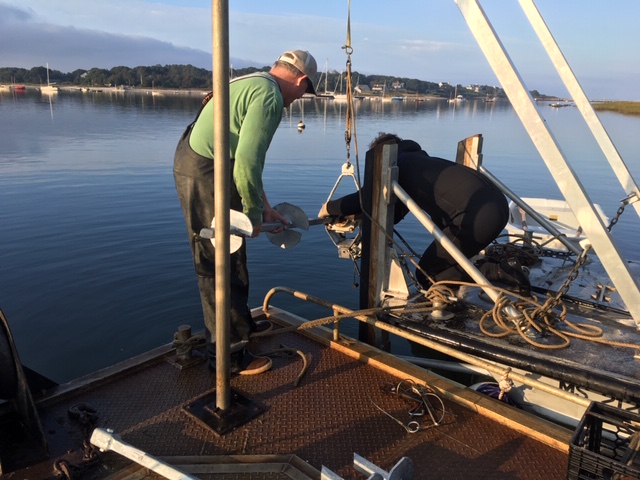Water Quality Project in West Falmouth Picks Up Momentum
Eelgrass is one of the most important plants in the bay. It cleans water, nurtures fish and shellfish, absorbs climate-warming carbon, produces oxygen and acts as a natural buffer for the coastline during storm events. In short, eelgrass is a powerful force for good in Buzzards Bay so increasing this saltwater plant pays a substantial return on effort.

Two years ago, the Buzzards Bay Coalition in partnership with the town of Falmouth organized an effort to replace 41 conventional boat moorings in West Falmouth Harbor with conservation moorings. Conservation moorings don’t have a chain that lies on the seafloor and scrapes and kills eelgrass as a boat’s position moves in concert with wind and tide.
This year a local family foundation, The Richard and Susan Smith Family Foundation, have stepped forward with a gift to allow West Falmouth to add ten more conservation moorings. With 51 total moorings, West Falmouth’s outer harbor likely has one of the highest concentrations of conservation moorings in the Bay.
Using the Division of Marine Fisheries protocols, scientists from the Woods Hole Oceanographic Institution will be monitoring the eelgrass in the harbor through 2024 to record eelgrass recovery within the old mooring scar.
The conservation moorings project is part of a larger effort by the Buzzards Bay Coalition to restore West Falmouth Harbor. The organization has been facilitating the installation of nitrogen-reducing septic systems in environmentally sensitive areas and has worked to conserve forests and salt marshes around the harbor.
The additional 10 moorings will be installed this May as the bay opens up for another season of recreational boating. It will be exciting to see the effect of these new moorings and other clean water efforts on water quality in West Falmouth harbor.